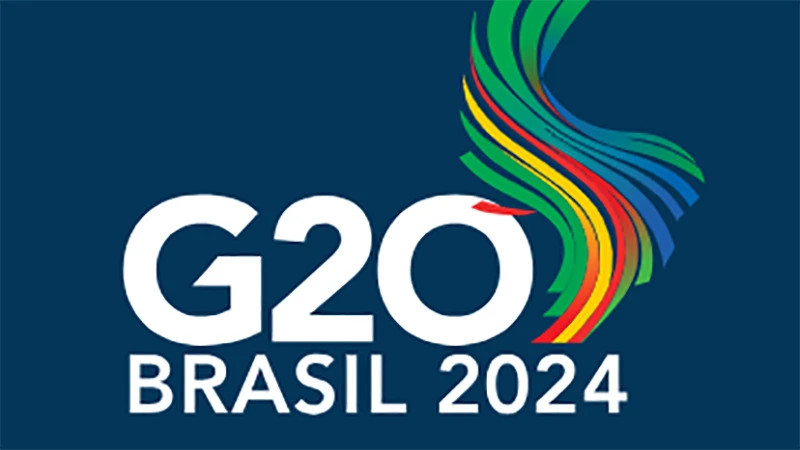Supporting the development of sustainable and inclusive agriculture and combating destructive fishing practices were key topics affirmed at the recently-concluded G20 Agriculture Ministers' Meeting in Chapada dos Guimarães, Mato Grosso, Brazil. The event saw the participation of 23 ministers and 43 delegations from member countries and international organisations.
Speaking to the media, Brazil’s Agriculture Minister Carlos Favaro praised the positive outcomes of the meeting, which opened new prospects and directions for global agriculture. He emphasised that after five years of discussions, this was the first time the agriculture sector received consensus from G20 members, resulting in a joint declaration.
Carlos Favaro affirmed that the declaration from this meeting marks a new direction for sustainable agricultural production and fishing practices worldwide. In the declaration, G20 member countries also committed to safeguarding global food security by implementing sustainable agricultural practices, emphasising the need to promote international trade, combat climate change, and protect biodiversity in agricultural development.
Before the G20 meeting's declaration, ensuring sustainable agriculture and food security had already been key messages stressed at several other important international conferences.
In New York (the US), the 78th session of the United Nations (UN) General Assembly's Economic and Financial Committee recently held a general debate on poverty eradication, agricultural development, and food security. Nations expressed concerns about unsustainable agricultural development as well as the persistent issues of poverty and inequality in many countries and regions worldwide.
The UN reported that approximately 670 million people still live in extreme poverty globally. Food security has been threatened by post-pandemic impacts, armed conflicts, and climate change.
Sustainable agricultural development and addressing global food security challenges were also central topics at the 9th APEC Food Security Ministerial Meeting (FSMM) held in Peru at the end of August. The meeting acknowledged that food security challenges in the Asia-Pacific region have worsened due to natural disasters that have devastated crops and infrastructure.
In the statement issued after the meeting, the ministers highlighted the interwoven impacts of climate change, supply chain disruptions, and economic inequality, which has been increasingly threatening the stability of the global food system.
Angel Manero Campos, Peru's Minister of Agricultural Development and Irrigation, called for coordinated actions at both regional and global levels among APEC members to address these challenges, including the enhancement of support and empowerment for smallholder farmers and small and medium-sized enterprises (SMEs). APEC must continue to prioritise sustainable agricultural practices to conserve natural resources and protect the environment, invest in renewable energy sources, and promote sustainable land and water management activities.
These declarations and actions continue the commitments made at the 28th Conference of the Parties to the United Nations Framework Convention on Climate Change (COP28), held in the United Arab Emirates (UAE) at the end of 2023.
Accordingly, 134 countries, which produce 70% of the world's consumed food, signed a joint declaration emphasising the priority of developing sustainable and climate-resilient foods and agricultural systems.
















